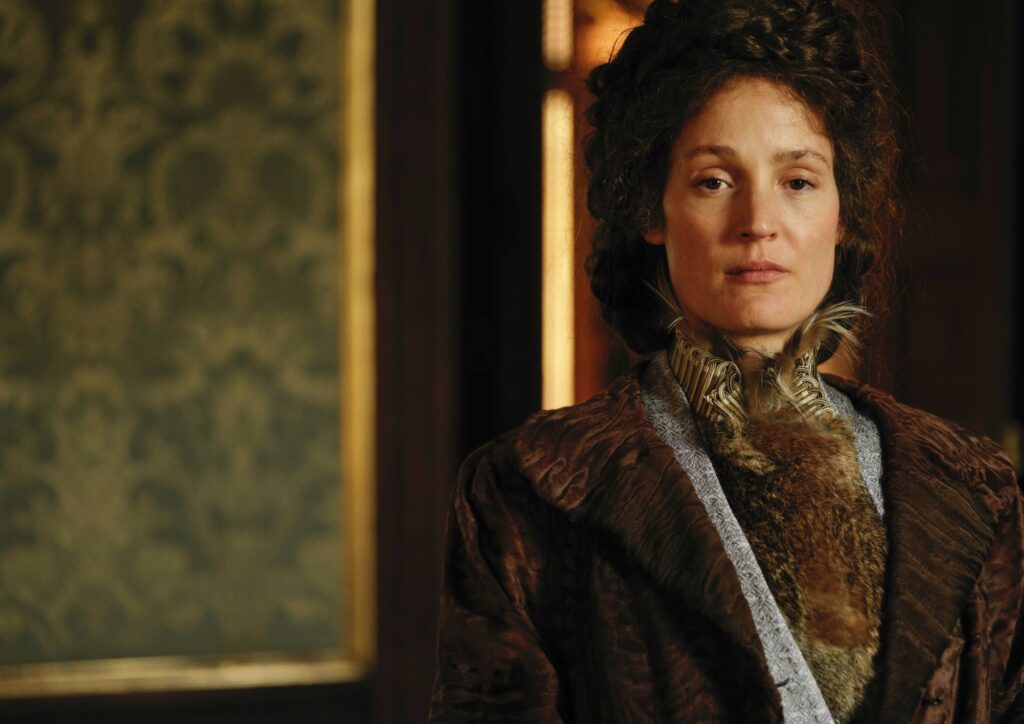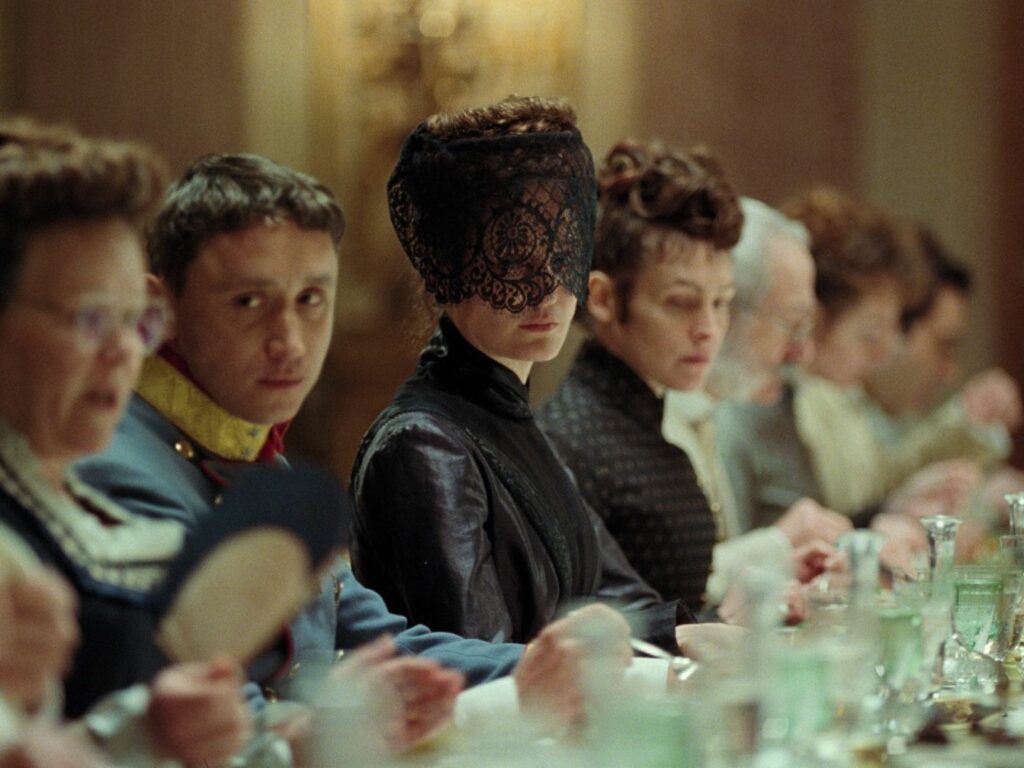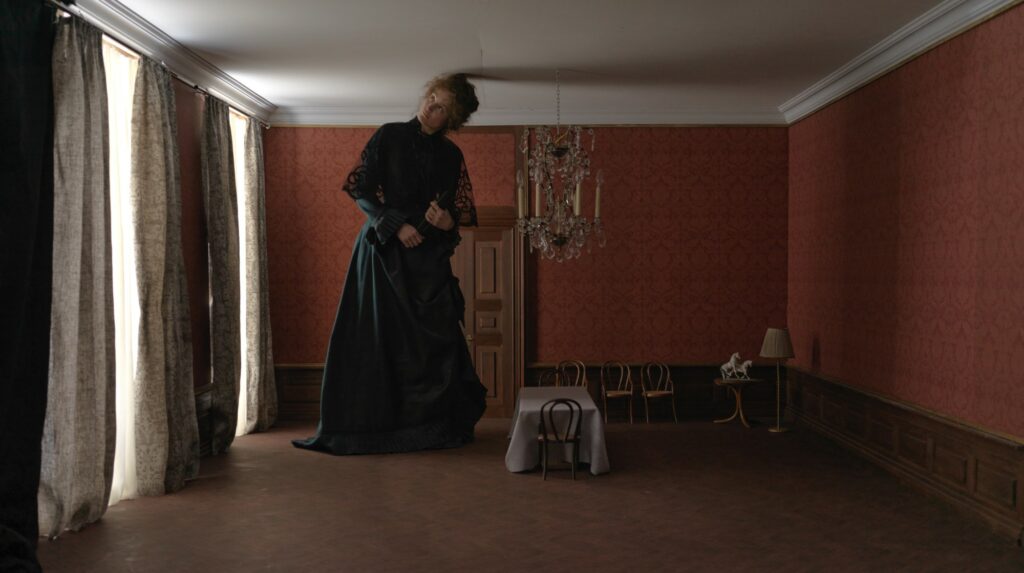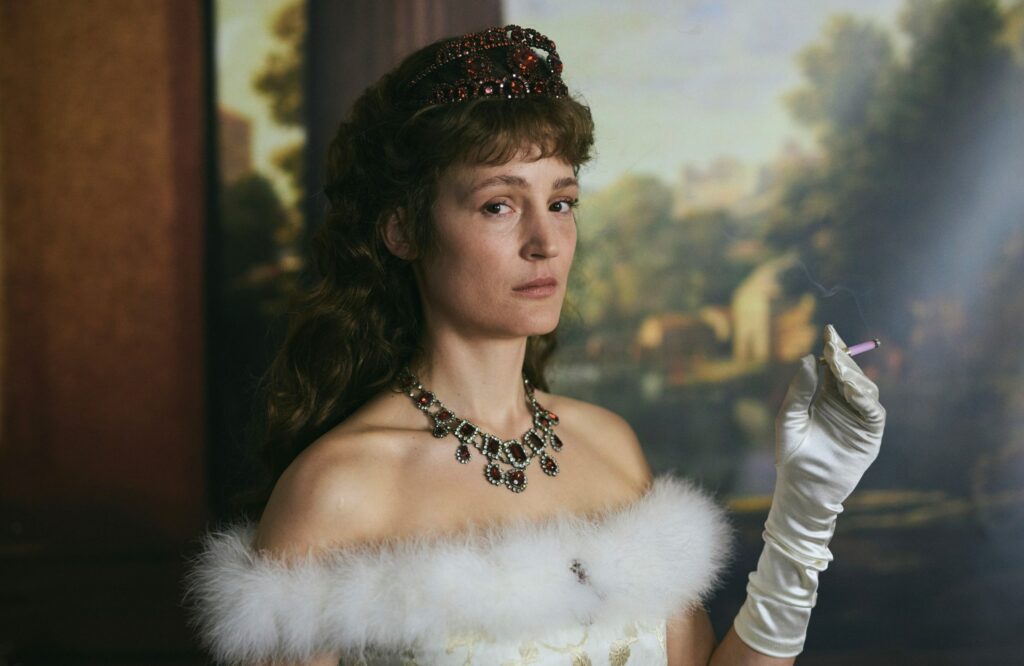Drawing on the current popularity of historical, independent women in film, Corsage peers curiously into a fictional year in Empress Elisabeth’s (Vicky Krieps) life. Empress of Austria and wife to Emperor Franz Joseph (Florian Teichtmeister), writer-director Marie Kreutzer’s film explores the story of a woman as well known for her love story as her title.
In an attempt to better examine this complex character, so ill-suited to her time and position, Kreutzer draws on the Empress’s well-known disposition to imagine the year she turned 40. Like dirty laundry, we are offered her secrets; a marriage that makes her despondent, a distant relationship with her children and a social status that leaves her entirely unfulfilled. Though it may be difficult to empathise with what, on the outside, looks like a fairytale existence, the dreadfully boring reality of her life earns her the audience’s sympathy.

Corsage is unique from the four other Sisi productions released this year in that we meet Empress Elisabeth as a much older woman, disillusioned with her life and largely out of love with her husband. The Empress who won hearts and minds with her beauty is haunted by her increasingly haggard appearance, brutally aware of how her power and import decrease with each wrinkle and sag. Her age is a source of endless anxiety, which no holiday, no matter how far, can free her from. In comparison to the confident, proud young woman you might meet in other releases, our Elisabeth is frightened and desperate, clinging to anyone who can make her feel beautiful again, no matter how dangerous the relationship.
The result is a complicated character, cold and distant, yet relatable in her own way. She is not the most obvious heroine, nor someone it is easy to like, yet her flawed personality and near-obsessive vanity can’t help but reflect our own common fears of mortality. Moreover, while the cold detachment of her character is initially off-putting, it works to great effect when one considers her status, leaving the audience to feel much like her own staff – tense and mildly curious about her next bizarre move.

Exploring the story from a sympathetic and feminist angle, it is evident that Empress Elisabeth lived an empty life, her role as consort failing to provide any sense of achievement or contentment. Her children, though dearly loved, are a constant reminder of her station, their roles as heirs to the throne seemingly the only significant thing about them. And while one might imagine from her fame and popularity that she was a beloved and influential monarch, it becomes clear that she is largely powerless. What little influence she may once have had is slowly eroded by the apparent insanity that overtakes her.
Overall, the most tragic aspect of her story is that she creates much of her own trouble. For as Corsage progresses, it is clear that love has led Elisabeth down a path she should never have trod. Her natural inclination to be free and unfettered stands at total odds with her station, leaving her more trapped bird than ruling monarch, to everyone’s misfortune.

Indeed, it is tempting to describe Corsage as a romantic tragedy, a twisted retelling of Romeo and Juliet (without quite so much death). But the one thing that stands out more than the misery is the hope, always bubbling just below the surface. For no matter what terrible grief engulfs the Empress, or any of the other unfortunate women she encounters, there is always a strength hiding within. Despite all her melancholy, she is also the most alive person in the film, her smiles and laughter filling scenes more than any other. It is both unsettling for one to be so changeful, and inspiring. It serves as a reminder that wealth does not protect from suffering, nor is it wealth that buys her those moments of happiness.
Corsage’s world premiere at Cannes solidified it as a film to watch, gaining its leading lady the Un Certain Regard Best Performance Prize. In addition, it earnt itself a place on the Oscar’s shortlist of Best International Features and won Best Film at the London Film Festival. Accolades like that undoubtedly raise expectations, and it is always a pleasure when they live up to them, as this production has. With beautiful sets, gorgeous costumes, intriguing characters and an unexpected score whose modernity a wonderful fit for our unapologetically independent Empress, it is no surprise that Corsage should be such a success on the international film scene.

For all its strengths, however, there are some painfully obvious flaws. Such issues are most apparent in the film’s editing. When done well, the editing is excellent: dark and brooding, the colour palette and soundtrack pair perfectly to elicit the different emotions of our multifaceted protagonist. But when it gets it wrong, the sheer silliness of the mistakes are maddening. Exit signs caught in scenes despite not being invented until after Empress Elisabeth died. Hotel entranceways that seem far too modern for the 19th-century era our film is based in. Small things for sure, but so was the coffee cup in Game of Thrones – and look how that turned out. It is a real shame to have such minute details take you out of the time period, especially when the production is otherwise filled with great talent and potential.
Mercifully, these errors (while frustrating) do not significantly damage Kreutzer’s beautiful creation, resulting in a compelling historical drama that stands apart from its peers. So long as you can accept Corsage as a fictional imagining of Empress Elisabeth’s life and take events with a heavy pinch of salt, you will be able to enjoy a delightfully brooding drama that highlights the complicated life of one of the world’s most complicated women. Think love, death and that most odious of words: duty. Just what we needed post-Christmas!
Corsage is out in cinemas from December 26th.
